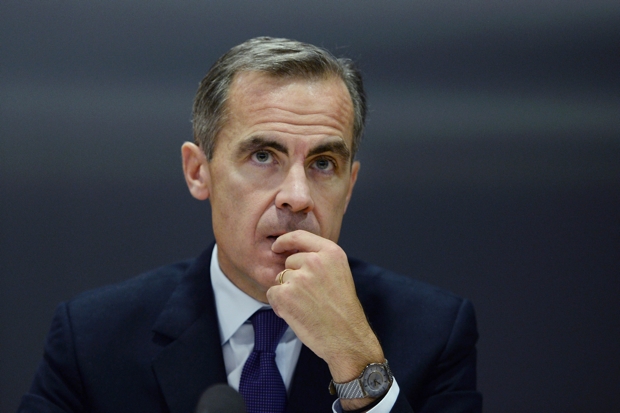There are not many predictions that are safe to make in the financial markets. M&S’s results will always be disappointing is perhaps one. Sir Philip Green will never apologise for anything is another. And there is one more that can now be added to the list. The Bank of England won’t raise interest rates when it meets this week.
But it should. Why? Because the ‘emergency’ post-Brexit cut is already looking like an over-reaction. In truth, the Bank’s Governor Mark Carney is already looking dangerously over-committed to Project Remain. The best thing the Bank could do now would be to admit that it had a made a mistake – and put rates back to where they were before 23 June.
Even the most wildly optimistic Brexiteer, and there were a lot who were far too blasé about the economic implications of their cause, could not have hoped for such a run of positive economic data in the weeks after the vote. Retail sales have risen strongly. Confidence is good. Inflation, despite the drop in the pound, is unchanged. Only today we learned that unemployment was still falling, while the number of people in jobs has hit yet another all time high. Heck, even the trade deficit is coming down. The predictions from the City of an immediate collapse once the decision to leave the EU was made are looking ever more ridiculous with every week that passes.
The trouble is, the Bank is still in ‘emergency mode’. Last month, the Monetary Policy Committee cut rates from 0.5 per cent to 0.25 per cent and re-launched quantitative easing, otherwise known as printing money. The reason? To counter the slowdown the Bank forecast was inevitable over the rest of this year.
But the slowdown hasn’t happened. Instead, the economy has chugged along much as it did before. So surely the Bank should admit it had got it a bit wrong, and reverse that decision? After all, if a pilot changed course to avoid some heavy turbulence, but then the weather turned out to be fine, you would expect them to switch back to the original route. Anything else is just being pig-headed.
There need be no shame in doing so. Monetary policy involves difficult judgements at the best of times. For all the equations and charts its decisions are dressed up in, economics is more of an art than a science. When an event as unique as Brexit happens, it was perfectly reasonable for the Bank to take pre-emptive action if there was a risk of recession.
But there is no case for not changing its mind when that risk has evaporated. In reality, there are three big reasons for raising rates. First, it would give it scope to cut if there really is a downturn in 2017 or 2018 – after we finally trigger Article 50 for example. It would restore confidence globally that Britain has sailed through Brexit largely unscathed. And perhaps most importantly of all, it would restore some credibility for the Bank, and Carney – by showing that it was not so ideologically committed to the EU that it was unable to concede that there had been very little short-term economic impact from leaving. The Bank almost certainly won’t make that move tomorrow – but it would do its reputation a lot of good if it did.






Comments